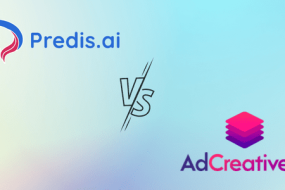
Top 5 AI Finance Tools Every Business Should Consider
As artificial intelligence continues to transform the finance industry, businesses must adapt by leveraging innovative tools that enhance efficiency and decision-making. Here are the top five AI finance tools that every business should consider.
1. QuickBooks
Features: Automated bookkeeping, expense tracking, invoicing, and reporting.
Pros: User-friendly interface; excellent customer support; integrates with various apps.
Cons: Can be expensive for larger businesses; limited customization options.
Pricing:
- Simple Start: $25/month
- Essentials: $50/month
- Plus: $80/month
How to Use QuickBooks:
- Create an account on the QuickBooks website.
- Select a pricing plan that suits your business needs.
- Set up your company profile and link your bank accounts.
- Start entering transactions or automate import from linked accounts.
- Use reporting features to analyze financial data.
2. Xero
Features: Cloud-based accounting, invoicing, bank reconciliation, and inventory management.
Pros: Excellent for small businesses; strong mobile app; great reporting features.
Cons: Limited payroll features; can be overwhelming for new users.
Pricing:
- Early Plan: $12/month
- Growing Plan: $34/month
- Largest Plan: $65/month
How to Use Xero:
- Create an account on the Xero website.
- Select a suitable pricing plan.
- Add your business details and connect your bank account.
- Create invoices and record expenses directly in the app.
- Utilize the dashboard for insights into your financial health.
3. Kabbage
Features: Automated loan application process, funding options based on business performance.
Pros: Fast funding; no hidden fees; flexible repayment options.
Cons: Higher interest rates; limited loan amounts for startups.
Pricing:
- No upfront fees; interest rates vary based on creditworthiness and loan terms.
How to Use Kabbage:
- Create an account on the Kabbage website.
- Link your business bank account for financial analysis.
- Select a loan amount and review terms before applying.
- If approved, funds are typically available within hours.
4. Zest AI
Features: AI-driven credit scoring and risk assessment tools for lenders.
Pros: Reduces bias in lending decisions; improves approval rates for borrowers.
Cons: Requires significant data input; may not be suitable for all lending types.
Pricing:
- Pricing is customized based on lender needs and data usage.
How to Use Zest AI:
- No monthly fees; interest rates range from 9.9% to 19.9% depending on creditworthiness.
- Create an account on the Tally website.
Add your credit card information so Tally can analyze your debts.
Tally will suggest a payment plan based on your financial situation.
You can track payments and progress through their app.
Conclusion
The integration of AI tools in finance is not just a trend but a necessity for businesses looking to enhance efficiency and decision-making capabilities. By considering these top five tools—QuickBooks, Xero, Kabbage, Zest AI, and Tally—businesses can streamline their financial operations while gaining valuable insights into their performance.
Citations:
1. Invested Mom – The Pros and Cons of AI-Powered Personal Finance
2. Amber Student – AI For Finance 2024
3. 365 Business Finance – AI in Financial Services
4. Terzo – Exploring the Pros and Cons of AI in Financial Services
5. The Finance People UK – The Pros and Cons of Using AI in Finance
6. Litslink – Best Finance AI Chatbots













